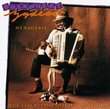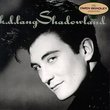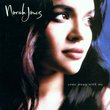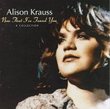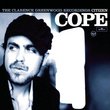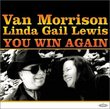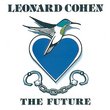| All Artists: Etta James Title: These Foolish Things : The Classic Balladry Of Etta James Members Wishing: 2 Total Copies: 0 Label: Chess Original Release Date: 3/14/1995 Release Date: 3/14/1995 Genres: Blues, Pop, R&B Styles: Vocal Blues, Vocal Pop, Soul Number of Discs: 1 SwapaCD Credits: 1 UPCs: 076732935422, 0076732935422, 076732935446 |
Search - Etta James :: These Foolish Things : The Classic Balladry Of Etta James
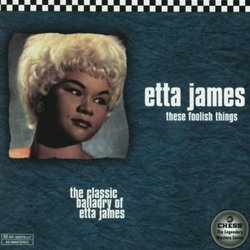 | Etta James These Foolish Things : The Classic Balladry Of Etta James Genres: Blues, Pop, R&B
Etta James, Ruth Brown, and Little Esther Phillips helped revolutionize American music with early-'50s rock & roll hits, but they grew up thinking of Ella Fitzgerald, Billie Holiday, and Dinah Washington as the ultimat... more » |
Larger Image |
CD DetailsSynopsis
Amazon.com Etta James, Ruth Brown, and Little Esther Phillips helped revolutionize American music with early-'50s rock & roll hits, but they grew up thinking of Ella Fitzgerald, Billie Holiday, and Dinah Washington as the ultimate in singing. As they got older, James, Brown, and Phillips all recorded pop standards in the style of their original heroes, but James made the most convincing transition from sock-hop shouter to cabaret crooner, recording standards while still with Chess in the early '60s, and ultimately garnering a mid-'90s Grammy for her album of Holiday songs, Mystery Lady. James's early attempts at standards for Chess have now been gathered into an impressive CD anthology called These Foolish Things--The Classic Balladry of Etta James. The collection includes seven selections from the '62 album, Etta James Sings for Lovers, one number from the '71 album, Losers Weepers, plus six songs which have never appeared on an album before. James was only 24 when she cut the earliest tracks with producer Ralph Bass, and she plows through these romantic ballads with the same gospel-soul power which would soon turn songs such as "Tell Mama" and "I'd Rather Go Blind" into R&B classics. Highlights include the Lonnie Johnson hit "Tomorrow Night" and the Aaron Neville hit "Tell It Like It Is," which are transformed by the bluesy desperation of James's pleading. --Geoffrey Himes Similarly Requested CDs
|
Member CD ReviewsReviewed on 8/7/2006... Very nice
CD ReviewsThe cd you take with you to a desert island... 07/07/1999 (5 out of 5 stars) "If you can have but one blues cd...make it this one. Etta is at her very best in these recordings and brings a sweaty, kettle-about-to-boil-over passion reminiscent of Big Maybelle's Okey Sessions to these blues standards. The greats of the past must be smiling down from blues heaven on this disc...it is perfection!" Etta--An Overlooked Diva 11/01/2000 (5 out of 5 stars) "This gritty soul-filled woman can move me like no other R&B singer. Her version of the classic These Foolish Things scales the octaves like 'a fairground's painted swings/these foolish things/remind me of you'. A mix of Holiday and Fitzgerald, Etta takes us with her as she loses herself in the music. When she wails I just want to do the same. And that's her magic, she knows, God how she knows, how a woman feels. A great cd a great singer."
|

 Track Listings (14) - Disc #1
Track Listings (14) - Disc #1
